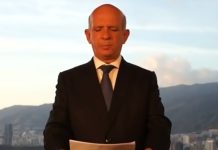Henry Kissinger, an American politician, diplomat, and geopolitical consultant who served as United States Secretary of State and National Security Advisor under the presidential administrations of Richard Nixon and Gerald Ford once quipped, “You can’t make war in the Middle East without Egypt and you can’t make peace without Syria.” Kissinger was known for his grasp of political realism, and it seems American foreign policy needs a dose of this realism, especially as it relates to Syria.
Current Bombing in Syria
In late June, the United States military, in the words of Pentagon spokesman John Kirby, “conducted defensive precision airstrikes against facilities used by Iran-backed militia groups in the Iraq-Syria border region.” Sara Plana, a 2021-22 Postdoctoral Fellow at Perry World House, “a center for scholarly inquiry, teaching, research, international exchange, policy engagement, and public outreach on pressing global issues” headquartered at the University of Pennsylvania, explains the reasoning behind the bombing:
Since at least 2019, these militias have launched rockets to hit bases where American forces are stationed, advising Iraqi forces on countering ISIS. These attacks have killed at least four Americans and dozens of Iraqi soldiers. Since April, these Iran-sponsored armed groups—colloquially called proxies—have been implicated in a series of new types of attacks, specifically dive-bombing-drone attacks on bases in Iraq hosting American military advisors.

Syria as a Proxy for Iran
This is likely true, as Iran’s proxy forces have been active in terrorist and military-style attacks against Western forces for decades, primarily through the Islamic Revolutionary Guards Corps-Quds Force (IRGC-QF), Iran’s paramilitary organization responsible for foreign operations. According to Seth Jones of the Center for Strategic and International Studies, “Tehran wields influence in the Middle East through its use of non-state partners, despite renewed U.S. sanctions against Iran and a U.S. withdrawal from the nuclear deal.”
Plana points out that “Iraqi Shia militias that have received funding, military supplies, and advising from Iran, specifically its Islamic Revolutionary Guard Corps, or the IRGC,” and “In recent years, both militias have operated within Iraq to roll back ISIS and in Syria to protect the Syrian regime. They’ve both opposed American troop presence in Iraq for many years.”
It’s also painfully hypocritical for the Biden administration to justify these military actions given what the President tweeted just one year ago:
Trump’s erratic, impulsive actions are the last thing we need as Commander-in-Chief. No president should order a military strike without fully understanding the consequences. We don’t need another war in the Middle East, but Trump’s actions toward Iran only make that more likely.
Then there was the pablum-like commentary by Jen Psaki,a former CNN contributor and current White House press secretary, who tweeted: “Also what is the legal authority for strikes? Assad is a brutal dictator. But Syria is a sovereign country.”
But beyond the hypocrisy lies the bigger problem. It’s our presence in the region, specifically Iraq, that provides both the initiative and the justification for the proxy attacks on our military troops. Now, I don’t want to be misunderstood here. I completely acknowledge that the IRGC is a terroristic entity, and they often perpetrate heinous acts of violence, even against fellow Muslims. Still, the bigger question we have to ask, if we are operating within the sphere of political realism, is Why are we still in Iraq to begin with?
To begin with, there are humanitarian issues. Glen Greenwald, a writer for The Ron Paul Institute for Peace and Prosperity, makes the following argument: ”Biden did not bomb Iran or order Iranians to be bombed or killed. The targets of US aggression were Iraqis in their own country, and Syrians in their own country. Only the US war machine and its subservient media could possibly take seriously the Biden administration’s claim that the bombs they dropped on people in their own countries were ‘defensive’ in nature.”
And Spencer Ackerman, a veteran journalist with a focus on national security issues, put it bluntly in his acerbic tweet: “Just get the fuck out of Iraq and Syria. The strikes happened because US forces are targets of opportunity, by an adversary entirely different than the one they’re supposedly still there to fight. No one bothers to pretend anymore that strikes like these accomplish anything.”
Plana seems to sympathize with Ackerman’s perspective to a degree, stating, “The Iran-backed militias target American forces on Iraqi bases, and Iraqi forces have suffered the highest casualties from these attacks. American decisions to strike these militias within Iraqi territory (one of the three targets in the last American strike was on the Iraqi side of the border) have also caused consternation from the Iraqi government, which has claimed U.S. forces did not seek permission and objected to more violence in Iraqi territory. The Iraqis are caught in the middle.”
There are also wider, political and constitutional issues to address because there are limitations on how aggressive a U.S. president can be with military strikes that are not authorized by Congress. Sen. Chris Murphy (D–Conn.), argues that “My concern is that the pace of activity directed at U.S. forces and the repeated retaliatory strikes against Iranian proxy forces are starting to look like what would qualify as a pattern of hostilities under the War Powers Act,” Both the Constitution and the War Powers Act require the president to come to Congress for a war declaration under these circumstances.”
Ultimately, Iran and its proxy wars present a complicated problem that will require more than strategic bombing initiatives, which likely will not have any significant impact on stopping the IRGC because their network is both widespread and extremely active beyond Iraq and Syria. This means the United States must not only have a detailed plan, but a coalition of willing international partners who share the same interests and political goals.
Jones has this advice going forward: “Yet Iran’s continuing activism across the region—including by the IRGC-QF and its leader, Qassem Soleimani—requires more effective U.S. cooperation with governments in Europe and across the region to balance against Tehran. The results thus far have been mixed.”
Meanwhile, peace in the Middle East hangs on the shoulders of Syria’s future. Let’s pray we can see this reality.
At Newsweed.com, we adhere to three simple principles: truth, balance, and relatability. Our articles, podcasts, and videos strive to present content in an accurate, fair, yet compelling and timely manner. We avoid pushing personal or ideological agendas because our only agenda is creating quality content for our audience, whom we are here to serve. That is why our motto is ”Rolling with the times, straining for the truth.”
Your opinion matters. Please share your thoughts in our survey so that Newsweed can better serve you.
Charles Bukowski, the Los Angeles beat poet that captured the depravity of American urban life once said, “There is something about writing poetry that brings a man close to the cliff’s edge.” Newsweed is proud to stand in solidarity and offer you a chance to get close to the cliff’s edge with our first Power of Poetry Contest. Are you a budding bard, a versatile versifier, a rhyming regaler? Do you march to the beat of iambic pentameter, or flow like a river with free verse? If so, here’s your opportunity to put your mad poetic chops to the test. Enter our poetry contest for bragging rights and an opportunity to win some cash!






